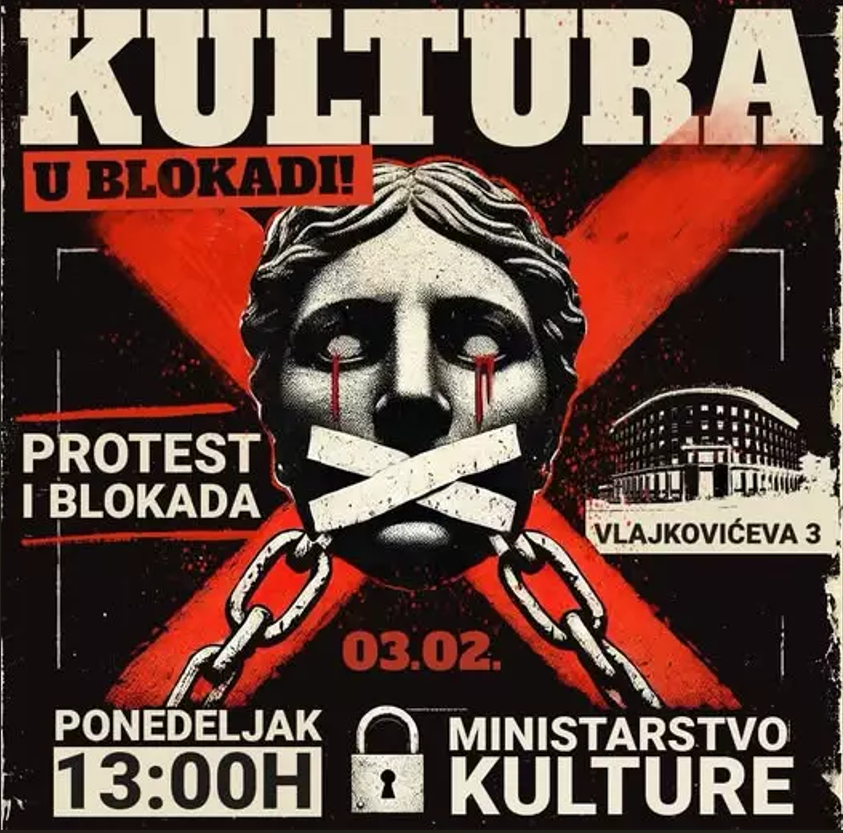On Monday, 3 February 2025, hundreds of Serbian artists, actors, and writers blockaded the Ministry of Culture in Belgrade for over two hours, protesting systemic neglect of the arts and solidarity with nationwide anti-corruption demonstrations. Organized by the grassroots coalition "Culture in Blockade", the action saw cultural workers from institutions like the Belgrade Philharmonic and National Theatre join independent artists to demand accountability for underfunding (0.67% of Serbia’s budget for culture, the lowest in Europe). The protest included a 15-minute silence honoring victims of the November 2024 Novi Sad railway station collapse, which killed 15 people and ignited months of unrest.
Among else, Artists and Cultural workers say that funds are distributed through non-transparent, politically biased processes. They also mention long-term degradation of cultural heritage (e.g., demolition of the General Staff building) and suppression of critical voices.
The Student movement
The crisis traces back to 1 November 2024, when a concrete canopy at Novi Sad’s recently renovated railway station collapsed, crushing passengers. The disaster, blamed on alleged corruption in a Chinese-backed infrastructure project, became a rallying point for public anger against President Aleksandar Vučić’s government.
Students from 63 universities and high schools initiated daily blockades, demanding transparency in the station’s reconstruction and a 20% increase in education funding. Their marches, marked by symbolic “red hand” banners (representing government culpability), drew tens of thousands.
On 28 January 2025, PM Miloš Vučević resigned amid pressure, calling for protesters to “calm passions”. His exit followed violent clashes, including a car attack on demonstrators in Belgrade that injured two doctors.
The protests reflect deeper frustrations with Vučić’s 12-year rule, criticized for eroding democracy, media freedom, and rule of law. Key issues include allegations of graft in infrastructure projects, notably the Novi Sad station, which protesters claim was rushed for political gain. Critics accuse Vučić of centralizing power, controlling courts, and stifling dissent. Freedom House downgraded Serbia to “partly free” in 2019. Privatization, low wages, and youth emigration also fuel discontent.
In the announcement of their action, Culture in Blockade said that their blockade of the ministry was, among other things, a protest for viciously attacked students and artists in recent events. For the destruction of cultural heritage, the demolition and sale of the General Staff building and its removal from the list of cultural assets and: For the long-term degradation and marginalisation of culture!
"Because we don't want to live in a society based on inequality, arrogance, vulgarity and a culture of fear!" the statement concludes.








